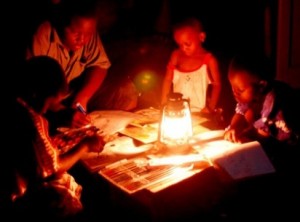Too early for government to hype end of dumsor – ACEP
 The Africa Centre for Energy Policy (ACEP) says it is too early for government to rejoice and flaunt an end to the energy crisis, as the situation is still very delicate.
The Africa Centre for Energy Policy (ACEP) says it is too early for government to rejoice and flaunt an end to the energy crisis, as the situation is still very delicate.
In the wake of the improvement in electricity supply, the majority in parliament, during President Mahama’s state of the nation address last week, sang the praises of the president for conquering “dumsor” – the power crisis that has long crippled the nation and caused many businesses to fold up.
President John Mahama also touted his government’s achievement of the fastest mobilization of emergency power.
However, ACEP at a press conference on March 2, said government needs to get back to work as Ghana is not out of the woods yet.
“We wish to state that we recognize the efforts being made by Government to address the power sector challenges of our country; and we indeed commend the president for these efforts during the challenging times of the power crises. We however strongly suggest that the situation at the moment is too fragile for comfort. Therefore instead of making merry at the modest achievements, we wish to call on the government to go back to work as the energy sector faces more challenges.”
Generation capacity it said, stands at 1,900 megawatts and though some 580 MW is expected in the course of the year from the Kpone Thermal Power Project (KTPP) and Asogli Phase 2, these will still not match installed capacity with the projected peak demand of 2,600 megawatts.
There would be a total deficit of about 400 megawatts if a reserve margin is considered (energy experts hold that the power crisis will be truly over when there is a reserve margin to compensate for any faults and emergencies)
The energy policy think tank also noted that the current generation capacity of 1,900 megawatts is even lower than the peak demand of 2,100 megawatts in 2014.
It said the reason the 1,900 megawatts has managed to bring some stability is because it does not cover demand from the Volta Aluminium Company Ltd (VALCO). Some businesses have also relocated to neighbouring countries such as Côte d’Ivoire and some, especially the small ones, have collapsed as a result of the power crisis.
Going forward, ACEP wants government to abrogate emergency power contracts that have not delivered on time, and negotiate the conversion of emergency power solutions to traditional IPP projects to reduce high cost to consumers.
By Emmanuel Odonkor
